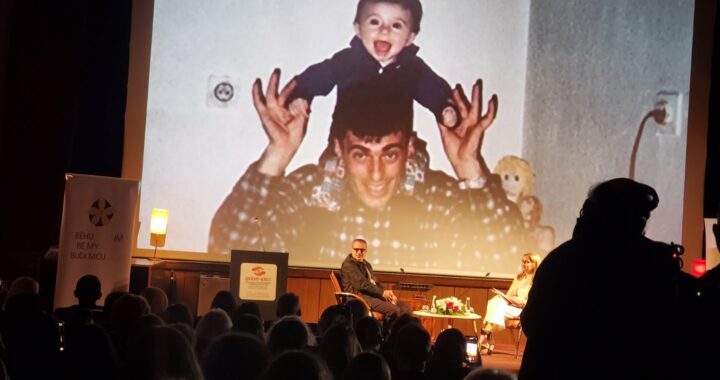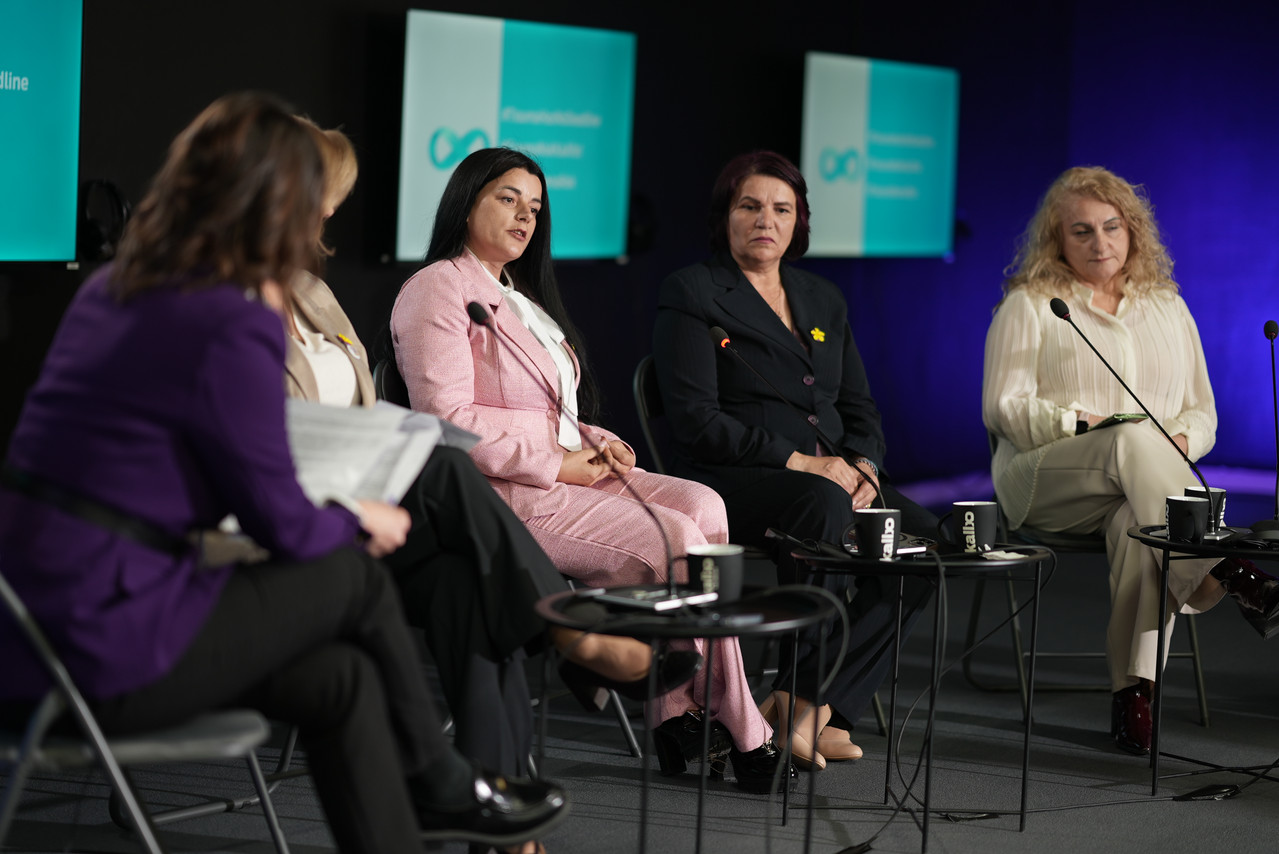

 Ramadan Nishori (L) tells his story at the Kino Armata community centre in Prishtina, April 14, 2025. Photo: BIRN.
Ramadan Nishori (L) tells his story at the Kino Armata community centre in Prishtina, April 14, 2025. Photo: BIRN.
Ramadan Nishori became the first man in Kosovo to publicly testify about surviving sexual abuse during the Kosovo war – as other survivors called for the deadline to apply for victim status to be scrapped.
Ramadan Nishori broke the silence about sexual abuse of male victims during the 1998-99 Kosovo war on Monday, calling on survivors not to be ashamed because “the shame is not ours, the shame is theirs [the perpetrators’]”.
“I am a man, a father of three who is trying to live a normal life,” Nishori said at the Kino Armata community centre in the capital, Prishtina, on April 14 – the national day of survivors of sexual violence during the war in Kosovo.
“I want people to see me as a person who has been through a lot and has struggled a lot. I want them to see me with respect as a person who fought to survive. I have fallen many times and I have stood up again,” he said, adding that he had spoken out “so I don’t remain a prisoner of the past”.
Nishori said he was 21 in September 1998 when he and other Kosovo Albanian men were ordered to the police station in the town of Drenas by Serbian forces.
He said the men were beaten on entering the police station and later had to wait in a hallway to undergo a paraffin test – to detect gunpowder residue on their hands.
“While waiting in the corridor, two policemen in uniform came, grabbed me by the collar, lifted me up and threw me into a bathroom, and there the worst thing happened, the worst thing that could happen to anyone,” Nishori said.
“I never thought it would happen to me. One of them raped me. As the second one was getting ready [to rape him], amid my screams, an Albanian man [a translator at the police station] banged on the door and got me out of there,” he added.
The next day, he was transferred to prison in Prishtina, where he would suffer mistreatment for months before being sent to Lipjan/Lipljan prison and eventually to Dubrava prison.
He also witnessed the Dubrava prison massacre, from May 19 to 24, 1999, where more than 100 ethnic Albanian prisoners were killed and many more injured.
Nishori said that, at the time, “death would have been peace”.

It was not until 2018, when Vasfije Krasniqi Goodman became the first woman to speak out publicly about surviving sexual abuse during the Kosovo war, that Nishori spoke to someone about what happened to him. He contacted Krasniqi Goodman and then went to the Kosovo Centre for Victims of Torture to receive psychological support.
He explained that he felt able to speak out only because of the support of his family. His wife had shown her support immediately while his daughter told him she already knew what had happened, after he showed her a letter confirming his status as a victim of sexual abuse during the war.
Stigma around sexual abuse during the war still exists in Kosovo society and survivors often suffer domestic violence, or are rejected by close family members, or do not speak to anyone about what they endured for fear of repercussions.
The Kosovo government has extended the mandate of its commission verifying victims of wartime sexual abuse until May 15, 2028, and the deadline to submit applications until May 15, 2027. While survivors and civil society groups welcomed the move, they have called for deadlines to be lifted entirely.
In a discussion at BIRN’s Reporting House in Pristina, launching the campaign “Trauma Has No Deadline”, supported by the British embassy in Pristina and BIRN, survivors of sexual abuse during the war and representatives of civil society organisations that work with them called for a more respectful approach to survivors from institutions, and particularly from the government verification commission.
The commission has rejected over 300 out of more than 2,000 applications. The Kosovo Court of Appeals has overturned decisions not to recognise the status of a victim at least three times.
Krasniqi Goodman told the discussion event that “victims must be treated with dignity and respect,” calling for a body to oversee the work of the commission, as the trauma endured by victims is not always taken into account, and they can feel as if they are being judged or investigated.
Shyhrete Tahiri volunteered to be a member of the commission saying that its work would improve if a survivor was part of it.
Mirlinda Sada, executive director of NGO Medica Gjakova, which advocates for survivors of sexual abuse during the Kosovo war, called for “no deadlines”, so that more survivors can come forward, whenever they are ready.
14 April 2025 - 18:42

Journalistic documentation of Kosovo’s civil resistance in the 1980s...

A Pristina court for a second time found Muhamet Alidemaj, a former Se...

As part of its second Reporting House museum, BIRN is chronicling the ...

Kosovo marked the 27th anniversary of the Recak massacre honoring the ...